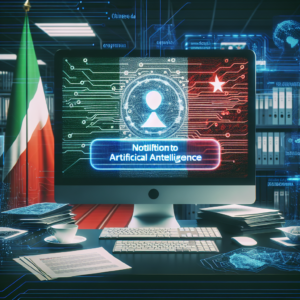French Tech Mogul Xavier Niel Warns of Europe’s Potential Decline
In a recent address, renowned French tech entrepreneur Xavier Niel issued a stark warning about the future of Europe in the technology landscape. Niel, who is the founder of the telecommunications giant Iliad and a prominent figure in the tech ecosystem, emphasized that Europe stands on the precipice of becoming an “abandoned” continent if it fails to capitalize on emerging opportunities in the tech sector.
The Importance of Technological Advancement
In his speech, Niel highlighted the vital role that technological innovation plays in economic growth and societal progress. He argued that Europe has a unique chance to position itself as a leader in key technologies, such as artificial intelligence (AI), quantum computing, and biotechnology. Failing to invest in these areas could lead to a significant decline in Europe’s global standing.
Niel’s concerns come against the backdrop of increasing competition from countries like the United States and China, who are heavily investing in technology. The rapid advancements in these regions pose a significant threat to Europe’s ability to compete on the global stage.
The Challenges Facing Europe
Niel pointed out several challenges that Europe faces in its pursuit of technological leadership:
1. Regulatory Hurdles: European regulations can often be cumbersome and slow, stifling innovation and making it difficult for startups to thrive.
2. Funding Gaps: Compared to the U.S. and China, Europe has a significantly lower level of venture capital investment, which hampers the growth of tech startups.
3. Talent Drain: Many of Europe’s brightest minds are leaving for better opportunities in Silicon Valley or other tech hubs, leading to a talent shortage in Europe.
4. Fragmented Market: With different regulations and languages across member states, the European market can be fragmented, making it difficult for tech companies to scale.
Opportunities on the Horizon
Despite these challenges, Niel remains optimistic about the potential for Europe to turn the tide. He believes that there are several key opportunities that, if seized, can help propel Europe into a leading position in the global tech arena:
1. Investment in Education and Training: Enhancing the educational system to focus on STEM (Science, Technology, Engineering, and Mathematics) can create a workforce that is well-equipped to handle technological advancements.
2. Fostering Collaboration: Encouraging collaboration between governments, private sector companies, and academia can lead to innovative solutions that benefit society as a whole.
3. Embracing Startups: Creating a more favorable environment for startups through funding and supportive regulations can stimulate innovation and growth.
4. Leveraging European Strengths: Europe has unique strengths, such as a strong emphasis on ethics and privacy, which can be leveraged to create technologies that are not only advanced but also socially responsible.
Niel’s Call to Action
Xavier Niel’s message is clear: Europe must act swiftly and decisively to harness the opportunities presented by the tech revolution. He urged policymakers, business leaders, and educational institutions to work together to create an ecosystem that fosters innovation and supports the growth of the tech sector.
He believes that Europe has all the resources it needs to succeed, but it requires a collective effort to ensure that these resources are effectively utilized. In his view, this is not just about building a thriving tech industry; it is about securing the future of the continent as a whole.
Conclusion: A Crucial Moment for Europe
As the world becomes increasingly interconnected and technology-driven, Europe finds itself at a crossroads. The decisions made in the coming years will shape the continent’s future in the tech landscape. Niel’s warning serves as a timely reminder that the stakes are high, and the opportunity to lead is now.
To avoid being relegated to an “abandoned” continent, Europe must prioritize technological advancement, foster a supportive environment for innovation, and invest in the future workforce. The time for action is now; otherwise, Europe risks falling behind in an ever-evolving global economy.
As we look towards the future, the question remains: will Europe seize this opportunity, or will it allow itself to be overshadowed by more aggressive competitors? The answer lies in the actions taken today.



